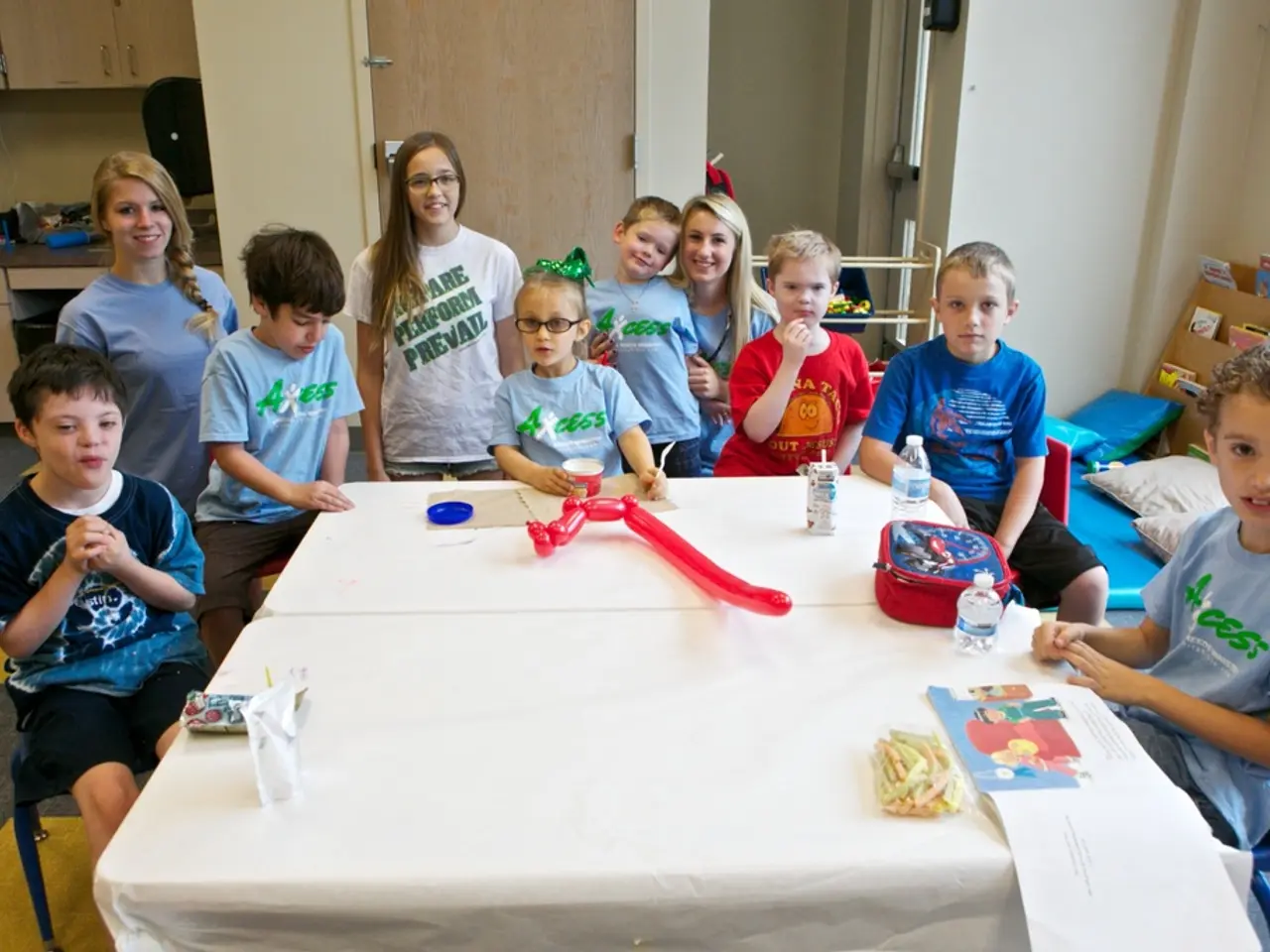Science-Backed Purchases for Enhancing Happiness Amongst the Middle Class Revealed
In a world where material possessions often seem to define success, a growing body of research suggests that for middle-class consumers, purchases that increase happiness typically involve mindful spending on experiences and investments that foster personal growth or social connections.
According to studies, regular, repeated social interactions create more lasting happiness than one-off events, regardless of their scale. Community classes, local sports league participation, membership in hobby groups or clubs, or informal hosting for regular gatherings can foster meaningful connections and increase happiness.
One such investment that has shown significant results is the purchase of a simple gratitude journal for daily reflection. Research published in the Journal of Happiness Studies indicates that writing in the evening about three specific things appreciated that day, including details about why they mattered, creates the most potent effects. Gratitude journaling helps counteract hedonic adaptation by refocusing on existing positives rather than perceived lacks, and it is found to rewire neural pathways to notice positive aspects of daily life more readily, creating a virtuous cycle that enhances well-being over time.
Spending on experiences, such as wellness activities, travel, or social events, tends to create longer-lasting happiness compared to buying material products. This is because experiences provide lasting memories and social bonding opportunities. Making mindful purchases that reduce stress and regret (avoiding impulsive buys triggered by emotional distress) leads to better emotional stability and well-being.
Using money to support relationships or personal growth—for example, through activities that bring people together or promote self-improvement—also correlates with greater happiness. Budgeting toward these kinds of purchases, such as affordable memberships for fitness or wellness programs, access to cultural or social experiences, or education and hobbies, can boost overall happiness more than acquiring goods with no personal or social value.
Loneliness, on the other hand, is as harmful to physical health as smoking 15 cigarettes daily, making social connection a health necessity. Therefore, fostering social connections through intentional spending can have considerable benefits for both mental and physical well-being.
In conclusion, conscious, experience-focused purchases and those that enrich social or personal development are scientifically linked to increased happiness for middle-class consumers. By making mindful choices and investing in experiences and relationships, individuals can improve their overall happiness and well-being.
My research concludes that mindful spending on lifestyle items such as a gratitude journal or experiences like travel, wellness activities, or social events, promotes personal growth and social connections, creating enduring happiness. Purchases that reduce stress and regret, like fitness or wellness program memberships, offer long-lasting benefits, particularly when they foster social connections. Investing in fashion-and-beauty, food-and-drink, home-and-garden, and cars may not have the same significant impact on happiness as experiences focused on relationships or personal development. Conversely, prioritizing social connections through intentional spending can improve both mental and physical well-being, as loneliness can be as harmful as smoking 15 cigarettes daily. Overall, a focus on conscious, experience-driven purchases can contribute to increased happiness and well-being in middle-class consumers. Shopping with a focus on relationships and personal growth can lead to a happier life.




